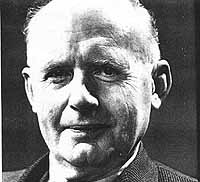Home Office Older Volunteers Initiative
The current UK government has often re-iterated that its policy is 'evidence led'. Whether this happens in practice is for others to decide, but a useful spin-off is that research has become more prevalent in areas interesting government.
This Research into Practice focuses on a report reviewing how volunteer-involving organisations attract and involve older volunteers. Between 1999 and 2003, the UK Home Office spread £1.5 million between 26 projects with the aim of looking at how to involve more older people in volunteering.
The report is a summation of the experiences of those projects, highlighting some well-trodden issues: what volunteers have to offer, what volunteers want and the barriers that need to be overcome to involve more older people. It also tries to distil lessons that are transferable.

 Alec Dickson is a name not enough newcomers to the field of volunteerism know, yet he was an active and outspoken advocate for the importance of volunteering from the 1950s up to his death in 1994. He founded the British organization, Voluntary Service Overseas, which directly influenced the development of the Peace Corps in the United States. Then he began Community Service Volunteers, a domestic program still placing over 3,000 full-time volunteers a year into service throughout the United Kingdom. The ripple effect of his influence was international, if not always attributed, as he was one of the first to articulate many of the principles we now value in this field. On the other hand, many of his opinions continue to be provocative -- reason enough to keep his words circulating and discussed.
Alec Dickson is a name not enough newcomers to the field of volunteerism know, yet he was an active and outspoken advocate for the importance of volunteering from the 1950s up to his death in 1994. He founded the British organization, Voluntary Service Overseas, which directly influenced the development of the Peace Corps in the United States. Then he began Community Service Volunteers, a domestic program still placing over 3,000 full-time volunteers a year into service throughout the United Kingdom. The ripple effect of his influence was international, if not always attributed, as he was one of the first to articulate many of the principles we now value in this field. On the other hand, many of his opinions continue to be provocative -- reason enough to keep his words circulating and discussed.